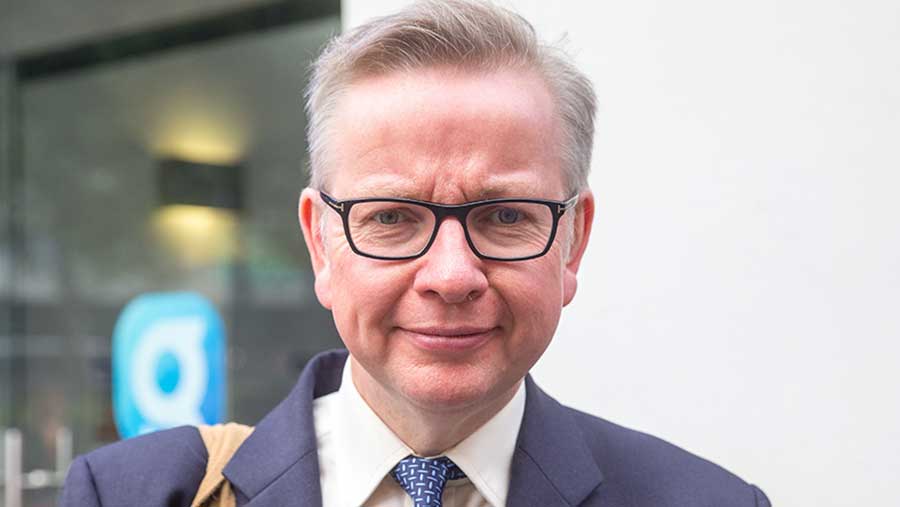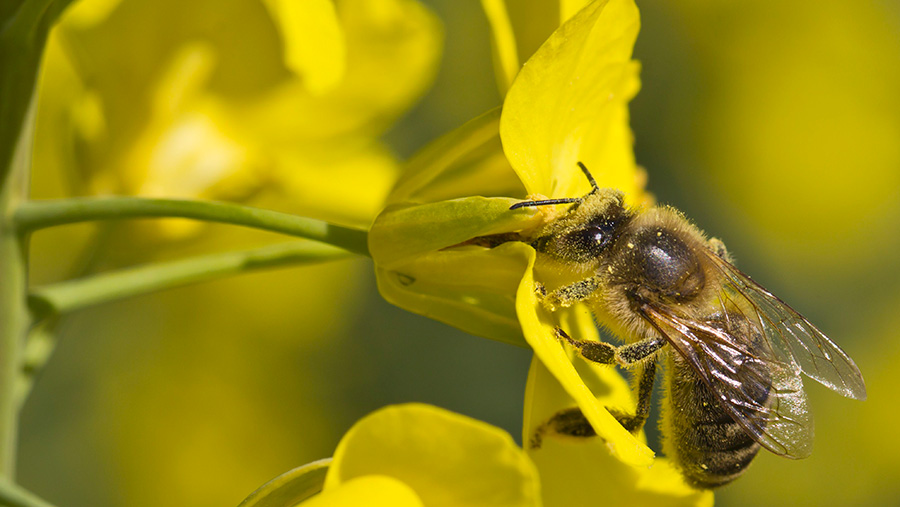Gove backs total ban on neonicotinoids
 Michael Gove © Mark Thomas/REX/Shutterstock
Michael Gove © Mark Thomas/REX/Shutterstock Defra secretary Michael Gove has suggested the UK could back a total ban on neonicotinoid pesticides, which have been linked to a decline in bee health.
In an article for the Guardian, Mr Gove said the weight of evidence showed the risks posed by neonicotinoids to the environment and bees was “greater than previously understood”.
“I believe this justifies further restrictions on their use. We cannot afford to put our pollinator populations at risk,” he added.
See also: Can sugar beet survive a future without neonicotinoids?
His comments to the left-leaning newspaper sparked accusations on social media that Mr Gove had been “got by the Greens”.
They will cause serious alarm to UK arable growers who use neonicotinoid seed treatments on non-flowering crops, including wheat and sugar beet, to control crop pests and diseases. The NFU insists there is no justification in science to extend the neonics ban to cover non-flowering crops.
Flowering crops ban
The EU banned their use on flowering crops, such as oilseed rape and sunflowers, in 2013 after they were linked to a decline in bee populations.
Mr Gove said the evidence of neonicotinoids’ harm to pollinators had grown stronger since 2013. A landmark pan-EU trial published in July showed neonicotinoids damage bee populations.
This report, as well as other research, was analysed by the UK’s Expert Committee on Pesticides (ECP), which published updated advice on Thursday (9 November).
“Exposure to neonicotinoid pesticides under field conditions can have an unacceptable effect on honeybee health,” the ECP concluded. “Such unacceptable effects are occurring at a landscape level and between seasons.”
Professor Ian Boyd, Defra chief scientific adviser, said: “The important question is whether neonicotinoids’ use results in harmful effects on populations of bees and other pollinators as a whole.
“The available evidence [now] justifies taking further steps to restrict the use of neonicotinoids.”
Crucial role of bees
NFU acting chief science adviser Chris Hartfield said: “Farmers are acutely aware that bees play a crucial role in food production and have done an enormous amount to help them.”
However, he challenged the ECP’s finding of “unacceptable effects”, saying there was a gap in understanding whether neonicotinoids damage overall ecosystem services. “In our view, the ECP has leapt beyond its brief.”

© WestEnd61 /REX/Shutterstock
Dave Goulson, a bee researcher at the University of Sussex in Brighton, said a “weight of evidence” linked neonicotinoids to a decline in bees, butterflies and other pollinators.
Move away from neonicotinoids
“We need to encourage farmers to move away from reliance on pesticides as the solution to the many problems industrial monoculture cropping create,” added Prof Goulson.
“Recent studies from France show farmers use more pesticides than is cost-effective, perhaps encouraged by agronomists, many of whom work for pesticide companies or get commission from pesticide sales.
“We urgently need a fundamental re-evaluation of how we produce food, and a move towards sustainable, smaller-scale production of healthy food for local consumption. Brexit provides a golden opportunity to do exactly that.”
John Sauven,Greenpeace UK executive director, said: “Study after study have shown these pesticides can harm bee colonies and contaminate our environment for years.
“Bees are vital, not just to our countryside and wildlife, but to the human food chain too as they pollinate many of the fruits and vegetables we eat. We cannot take any chances with their well-being.”

